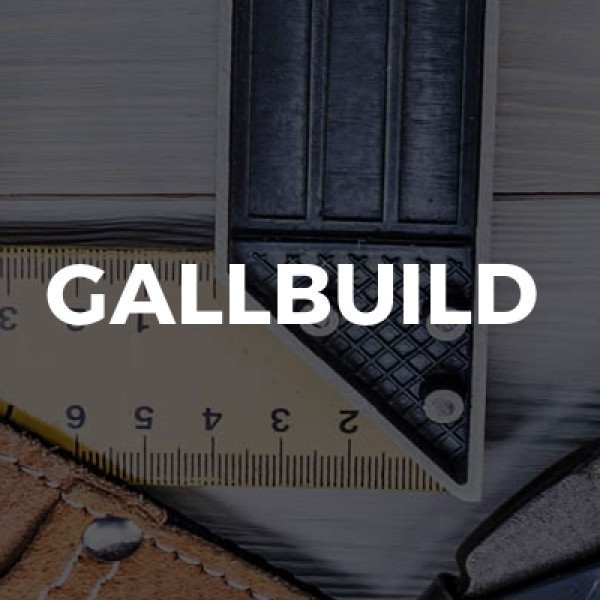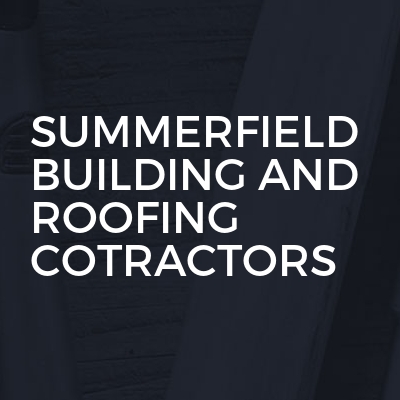Loft Conversions in Lewes
FT Carpentry, based in the charming locale of Mount Pleasant, is your go-to expert for all things building and carpentry... read more »
Welcome to T.LE Contracting Ltd, your trusted partner for all building services in East Sussex. Based in Preston, we proudly serve the Ea... read more »
Welcome to Gallbuild, your trusted partner for all building needs in Upper Horsebridge and throughout East Sussex. As a leading name in t... read more »
Welcome to Summerfield Building And Roofing Contractors, your go-to experts for all your construction and renovation needs in Argos Hill... read more »
LJR Building Services is a premier choice for all your construction and renovation needs in Fishersgate... read more »
Ashwell Carpentry Joinery LTD is the premier choice for home improvement services in Upper Horsebridge... read more »
Welcome to Xtenditall Ltd, your trusted builders and... read more »
Good Wood Solutions Ltd is your go-t... read more »
Welcome to Brighton 1 Builders & Property Services, y... read more »
Welcome to RJG Construction, your trusted partner for... read more »
Welcome to Lofthouse, your trusted partner for all bu... read more »
Welcome to Southern Specialist Treatments Ltd, your t... read more »
Welcome to Hope Restorations, your trusted partner fo... read more »
Welcome to 5D Carpentry Ltd, your trusted partner for... read more »
Welcome to MRK Construction Group Ltd, your trusted p... read more »
Welcome to South Coast Home Improvements, your go-to... read more »
Welcome to Chris’s Roofing and Building Service, yo... read more »
STF Start To Finish Sussex Ltd is yo... read more »
Welcome to Elite Carpentry, your go-to experts for al... read more »
Search Loft Conversions in places nearby
Understanding Loft Conversions in Lewes
Loft conversions in Lewes have become increasingly popular as homeowners seek to maximise their living space without the hassle of moving. Nestled in the heart of East Sussex, Lewes offers a unique blend of historical charm and modern convenience, making it an ideal location for such home improvements. Let's delve into the various aspects of loft conversions in this picturesque town.
The Appeal of Loft Conversions
Loft conversions are a fantastic way to add value to your home while creating additional living space. Whether you need an extra bedroom, a home office, or a playroom, converting your loft can provide the perfect solution. In Lewes, where property prices are on the rise, a loft conversion can significantly increase your home's market value.
Maximising Space
One of the primary reasons homeowners opt for loft conversions is to make the most of unused space. Attics often serve as storage areas, but with a bit of creativity, they can be transformed into functional and aesthetically pleasing rooms.
Cost-Effective Home Improvement
Compared to the cost of moving to a larger home, loft conversions are a more economical option. They allow you to stay in your beloved neighbourhood while enjoying the benefits of additional space.
Types of Loft Conversions
There are several types of loft conversions to consider, each with its own set of advantages. The choice largely depends on the structure of your home and your personal preferences.
Velux Loft Conversion
A Velux loft conversion is the simplest and most cost-effective option. It involves installing Velux windows into the existing roofline, allowing natural light to flood the space. This type of conversion is ideal for homes with ample headroom.
Dormer Loft Conversion
Dormer conversions are popular in Lewes due to their versatility. They involve extending the roof to create additional floor space and headroom. Dormers can be built in various styles, including flat-roofed, gable-fronted, and hipped-roof dormers.
Mansard Loft Conversion
Mansard conversions are more complex and typically require planning permission. They involve altering the roof structure to create a flat roof with a slight slope. This type of conversion offers maximum space and is often used in period properties.
Hip to Gable Loft Conversion
For homes with a hipped roof, a hip to gable conversion can provide significant additional space. This involves extending the gable wall and adjusting the roofline, creating a larger, more functional area.
Planning Permission and Building Regulations
Before embarking on a loft conversion in Lewes, it's essential to understand the planning permission and building regulations involved. While some conversions fall under permitted development rights, others may require formal approval.
Permitted Development Rights
In many cases, loft conversions can be carried out under permitted development rights, meaning you won't need planning permission. However, there are specific criteria your project must meet, such as not exceeding a certain volume or altering the roofline significantly.
When Planning Permission is Required
If your conversion involves significant changes to the roof structure or is in a conservation area, you'll likely need planning permission. It's crucial to consult with the local planning authority to ensure compliance.
Building Regulations
Regardless of whether planning permission is needed, all loft conversions must comply with building regulations. These regulations ensure the safety and structural integrity of the conversion, covering aspects such as fire safety, insulation, and access.
Choosing the Right Contractor
Selecting a reputable contractor is vital to the success of your loft conversion. A skilled professional will guide you through the process, ensuring your project is completed to a high standard.
Research and Recommendations
Start by researching local contractors with experience in loft conversions. Ask for recommendations from friends or neighbours who have undertaken similar projects. Reading online reviews can also provide valuable insights.
Obtaining Quotes
Once you've shortlisted potential contractors, obtain detailed quotes from each. Ensure the quotes cover all aspects of the project, including materials, labour, and any additional costs.
Checking Credentials
Verify the credentials of your chosen contractor, ensuring they are registered with relevant trade bodies. This provides assurance of their professionalism and adherence to industry standards.
Designing Your Loft Conversion
The design phase is where your vision comes to life. Collaborate with your contractor to create a space that meets your needs and complements your home's existing style.
Space Planning
Consider how you intend to use the space and plan the layout accordingly. Think about the placement of windows, doors, and furniture to maximise functionality and comfort.
Lighting and Ventilation
Natural light and ventilation are crucial in a loft conversion. Strategically placed windows and skylights can enhance the space, making it feel bright and airy.
Interior Design
Choose a colour scheme and decor that reflects your personal style. Consider using light colours to create a sense of openness, and incorporate storage solutions to keep the space clutter-free.
Cost Considerations
The cost of a loft conversion in Lewes can vary significantly depending on the type and complexity of the project. It's essential to budget carefully to avoid unexpected expenses.
Factors Affecting Cost
Several factors can influence the cost of your loft conversion, including the size of the space, the type of conversion, and the materials used. Additional features such as en-suite bathrooms or bespoke fittings can also add to the cost.
Budgeting Tips
To keep your project within budget, prioritise essential elements and consider where you can make savings. For example, opting for standard fixtures and fittings can reduce costs without compromising on quality.
Financing Options
If you're concerned about financing your loft conversion, explore options such as home improvement loans or remortgaging. It's advisable to seek financial advice to determine the best solution for your circumstances.
Benefits of Loft Conversions in Lewes
Loft conversions offer numerous benefits, making them a worthwhile investment for homeowners in Lewes.
Increased Property Value
A well-executed loft conversion can significantly boost your property's value, providing a substantial return on investment should you decide to sell in the future.
Enhanced Living Space
By converting your loft, you gain valuable additional space that can be tailored to your specific needs, enhancing your overall living experience.
Preserving Character
In a town like Lewes, where historical character is cherished, a loft conversion allows you to modernise your home while preserving its unique charm.
Common Challenges and Solutions
While loft conversions offer many advantages, they can also present challenges. Being aware of potential issues can help you address them effectively.
Structural Limitations
Older properties may have structural limitations that complicate loft conversions. A thorough structural assessment can identify potential issues and inform necessary reinforcements.
Access and Staircase Design
Creating access to the loft can be challenging, especially in homes with limited space. Innovative staircase designs can provide a practical solution without compromising on style.
Insulation and Heating
Ensuring adequate insulation and heating is essential for comfort. High-quality insulation materials and efficient heating systems can help maintain a cosy environment year-round.
Environmental Considerations
As sustainability becomes increasingly important, consider incorporating eco-friendly features into your loft conversion.
Energy Efficiency
Opt for energy-efficient windows and insulation to reduce your carbon footprint and lower energy bills. Solar panels can also be a viable option for generating renewable energy.
Sustainable Materials
Choose sustainable materials for your conversion, such as reclaimed wood or eco-friendly paints. These choices contribute to a healthier environment and add a unique touch to your space.
Water Conservation
If your loft conversion includes a bathroom, consider installing water-saving fixtures to minimise water usage and promote sustainability.
Legal and Safety Considerations
Ensuring your loft conversion complies with legal and safety standards is paramount to a successful project.
Fire Safety
Fire safety is a critical aspect of loft conversions. Install smoke alarms and ensure there are adequate escape routes in case of an emergency.
Party Wall Agreements
If your conversion affects a shared wall with a neighbour, a party wall agreement may be required. This legal document outlines the rights and responsibilities of both parties.
Insurance Implications
Inform your home insurance provider of the loft conversion to ensure your policy covers the new space. This can prevent complications in the event of damage or loss.
Frequently Asked Questions
- Do I need planning permission for a loft conversion in Lewes? In many cases, loft conversions fall under permitted development rights, but it's essential to check with the local planning authority.
- How long does a loft conversion take? The duration varies depending on the complexity of the project, but most conversions take between 6 to 12 weeks.
- Can all lofts be converted? Not all lofts are suitable for conversion. Factors such as headroom, roof structure, and access must be considered.
- Will a loft conversion add value to my home? Yes, a well-designed loft conversion can significantly increase your property's value.
- What is the cost of a loft conversion in Lewes? Costs vary based on the type of conversion and materials used, but typically range from £20,000 to £50,000.
- Can I live in my home during the conversion? In most cases, you can remain in your home, although there may be some disruption during construction.
Loft conversions in Lewes offer a practical and stylish way to enhance your home. By understanding the process and considering all aspects, you can create a beautiful and functional space that meets your needs and adds value to your property.
Send a message










